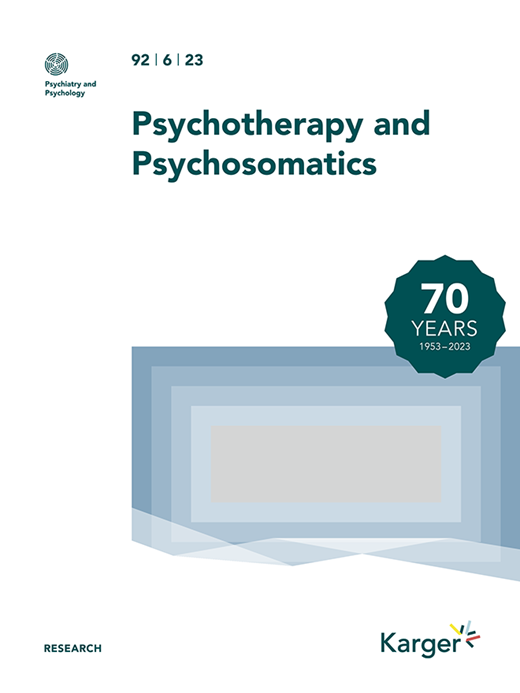Effect of Yoga on Psychological and Spiritual Outcomes in Cancer Patients: A Systematic Review and Meta-Analysis of Randomized Controlled Trials with Meta-Regression.
IF 17.4
1区 医学
Q1 PSYCHIATRY
引用次数: 0
Abstract
INTRODUCTION Psycho-spiritual distress remains one of the most prevalent and pressing concerns throughout the cancer survivorship journey, impacting their existential integrity. Various yoga interventions have been examined for their potential to alleviate this distress, but their effects in cancer patients varied. METHODS We searched seven databases (PubMed, Embase, Cochrane Central Register of Controlled Trials, PsycINFO, CINAHL, SportDiscus, and Web of Science) and two clinical trial registries from their inception to October 2024, without language restriction. The randomized control trials (RCTs) that compared the effects of yoga interventions with controls on psychological, spiritual, and emotional well-being among adults with cancer were included. The random effects pooled estimates (Hedges' g) and 95% confidence intervals (CIs) were calculated. Heterogeneity was assessed using I2. Moderators were identified through meta-regression. RESULTS Fifty-five RCTs involving 3,608 participants (2,935 [81.3%] female; mean age range, 46-69 years) were included. Meta-analysis revealed that yoga interventions largely reduced anxiety (Hedges' g, -0.82; 95% CI, -1.33 to -0.31; I2=88%), moderately-to-largely reduced depression (g, -0.62; 95% CI, -1.06 to -0.19; I2=85%), as well as mildly-to-moderately improved spiritual well-being (g, 0.31; 95% CI, 0.17 to 0.46; I2=0%) and emotional well-being (g, 0.23; 95% CI, 0.02 to 0.45; I2=47%). CONCLUSION Yoga effectively reduces anxiety and depression, and improves spiritual well-being and emotional well-being in cancer, underscoring their potential to improve the psychological and spiritual health of this population. More rigorously designed trials are needed to understand the optimal intervention parameters to maximize the effects of yoga on psychological outcomes.瑜伽对癌症患者心理和精神预后的影响:随机对照试验meta回归的系统评价和meta分析。
心理-精神上的痛苦仍然是癌症幸存者旅程中最普遍和最紧迫的问题之一,影响着他们生存的完整性。人们已经研究了各种瑜伽干预措施减轻这种痛苦的潜力,但它们对癌症患者的影响各不相同。方法我们检索了7个数据库(PubMed、Embase、Cochrane中央对照试验注册库、PsycINFO、CINAHL、SportDiscus和Web of Science)和2个临床试验注册库,检索时间从其成立到2024年10月,无语言限制。这些随机对照试验(rct)比较了瑜伽干预对成年癌症患者心理、精神和情感健康的影响。计算随机效应汇总估计(Hedges' g)和95%置信区间(ci)。采用I2评估异质性。通过元回归确定调节因子。结果55项随机对照试验共纳入3608例受试者,其中女性2935例(81.3%);平均年龄46-69岁)。荟萃分析显示,瑜伽干预在很大程度上减少了焦虑(赫奇斯g, -0.82;95% CI, -1.33 ~ -0.31;I2=88%),抑郁症中度至重度减少(g, -0.62;95% CI, -1.06 ~ -0.19;I2=85%),以及轻度至中度的精神健康改善(g, 0.31;95% CI, 0.17 ~ 0.46;I2=0%)和情绪幸福感(g, 0.23;95% CI, 0.02 ~ 0.45;I2 = 47%)。结论瑜伽能有效减少癌症患者的焦虑和抑郁,改善精神健康和情绪健康,强调其改善癌症人群心理和精神健康的潜力。需要更严格设计的试验来了解最佳的干预参数,以最大限度地提高瑜伽对心理结果的影响。
本文章由计算机程序翻译,如有差异,请以英文原文为准。
求助全文
约1分钟内获得全文
求助全文
来源期刊

Psychotherapy and Psychosomatics
医学-精神病学
CiteScore
29.40
自引率
6.10%
发文量
46
期刊介绍:
Psychotherapy and Psychosomatics is a reputable journal that has been published since 1953. Over the years, it has gained recognition for its independence, originality, and methodological rigor. The journal has been at the forefront of research in psychosomatic medicine, psychotherapy research, and psychopharmacology, and has contributed to the development of new lines of research in these areas. It is now ranked among the world's most cited journals in the field.
As the official journal of the International College of Psychosomatic Medicine and the World Federation for Psychotherapy, Psychotherapy and Psychosomatics serves as a platform for discussing current and controversial issues and showcasing innovations in assessment and treatment. It offers a unique forum for cutting-edge thinking at the intersection of medical and behavioral sciences, catering to both practicing clinicians and researchers.
The journal is indexed in various databases and platforms such as PubMed, MEDLINE, Web of Science, Science Citation Index, Social Sciences Citation Index, Science Citation Index Expanded, BIOSIS Previews, Google Scholar, Academic Search, and Health Research Premium Collection, among others.
 求助内容:
求助内容: 应助结果提醒方式:
应助结果提醒方式:


